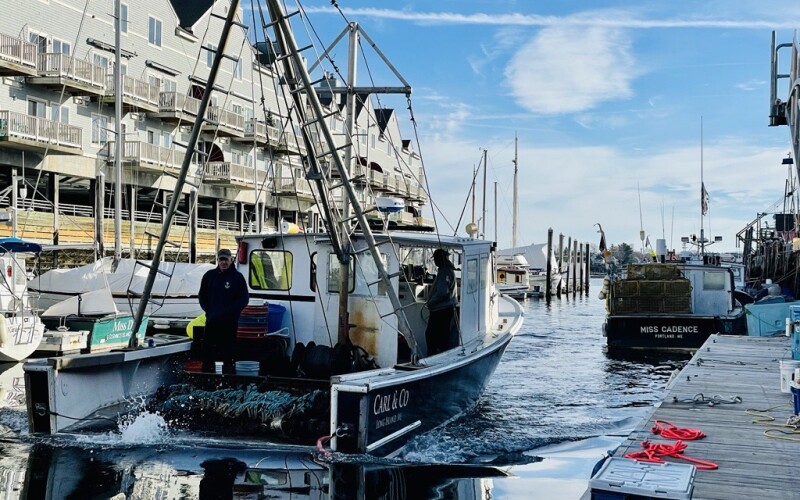On November 13, Senators Susan Collins and Jack Reed (D-RI) introduced the Working Waterfront Preservation Act. The bipartisan bill would help preserve access for the nation’s fishermen and maritime workers to the waterfronts in coastal communities, supporting the commercial fishing, aquaculture, boatbuilding, and for-hire recreational fishing industries that are vital to culture, heritage, and economies of coastal towns and cities.
Senator Collins has held her seat since 1997 and is Maine's longest-serving senator. She has advocated and secured funding for numerous fisheries in the state for over two decades. She has worked on many acts with Maine's Senator King, who has also actively supported Maine fisheries with bipartisan legislation such as the Fishing Industry Credit Enhancement Act. Senators King and Collins have worked to help keep the fishing industry alive from coast to coast.
“The hardworking men and women of Maine’s maritime industries continue to lose access to the waterfronts that sustain them. Recent demand for coastal property has only intensified the problem in Maine and nationwide,” said Senator Collins in the news release.
Senator Reed was elected in Rhode Island in 1996 and has worked on clean water projects to sustain a healthy environment and support the state’s fishermen and lobstermen. Reed recognizes these individuals' significant risks as they work hard to earn a living on the water. He continues to push to help grow Rhode Island’s marine workforce and revitalize its boating and fishing industries.
“Passing this bill would help support and sustain fishermen and other hardworking men and women who make their living on the waterfront,” said Senator Reed.
In April, the Maine Coast Fishermen’s Association (MCFA) published tools that could be used as part of a harbor management plan due to concerns about how gentrification of the coastal areas might affect commercial fishing. The MCFA stated that the increase in out-of-state buyers and lifestyle changes draw families to Maine’s quintessential coastal communities, “increasing pressure on the working waterfront faster than many towns can keep up with, adapt to, and plan for.”
Ben Martens, executive director of the MCFA, said, “The working waterfront is our gateway to the amazing seafood we harvest here in Maine and around the country. Without it, we lose crucial connectivity within our local food system and significantly reduce the opportunity that seafood represents. Thank you, Senator Collins, for continuing to advocate for Maine’s iconic fishing industry and fighting to bring much-needed resources and attention to our working waterfront communities.”
According to a Commercial Fisheries Research Foundation study, the commercial fisheries and seafood sectors account for more than 4,300 jobs and have a $420 million statewide economic impact in Rhode Island alone.
Fred Mattera, executive director of East Farm Commercial Fisheries, said, “Providing a robust working waterfront is imperative to maintaining and sustaining a vibrant fishing community throughout Rhode Island. A healthy marine infrastructure is necessary to preserve the growth of our existing fleet, attract vessels from neighboring states, and build incentives for shoreside businesses to invest in our communities. This is the cornerstone of enriching our future for generations to come.”
According to the most recent data from NOAA, commercial and recreational fisheries are responsible for more than 1.7 million jobs in the U.S., $253 billion in sales, and $117 billion in value-added impacts. This bipartisan act would establish a five-year $20 million annual grant program to provide those wishing to improve working waterfront property and work within the maritime industries. The Economic Development Administration would administer the grants, and successful applicants would need to be endorsed by state fisheries agencies. To be eligible for a grant, recipients must permanently protect an area as a working waterfront.
To read more on the Working Waterfront Preservation Act, find it here.







